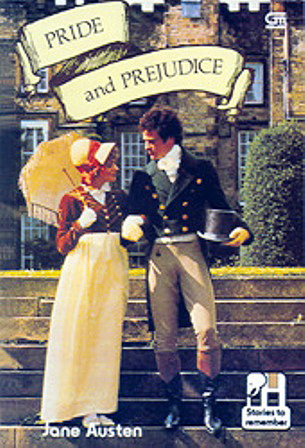Some people do re-read the books they like, or those which stay in their heart for some time for some reason. When I came across a tweet about Murakami Haruki’s Norwegian Wood on my timeline I was reminded of some memories I have of the time I read that book, years and years ago when I was younger, and suddenly I thought, “I didn’t actually understand the story.”
I was then motivated to read some books I had read before. I just thought I might have misunderstood them; or, if I read them again the second time, I might have a different point of view.
So, here’s a list of top five books I want to re-read some time in the future (in alphabetical order).
1). Jane Eyre by Charlotte Brontë
I first read this book when I was still at the university as a compulsory material for my literature class. And I hated it, not for the story, or the characters, or the author; I hated it because I failed my final exam. Yes, I ridiculously blamed it for my having to retake the entire course the next year and wasting my time. It’s been more or less 15 years now and in that span of time I always went, “Oh, not that book again!” every time I saw it.
However, looking back now, I suddenly think, “What did I miss that made me fail the exam?” I might have not read it properly, or correctly; or perhaps I simply didn’t really understand the entire text hence losing the context. And if that was the case, why didn’t I understand it?
So I want to re-read it to see if I did miss something, something important that I didn’t write down on my exam paper.
2). My Name is Red by Orhan Pamuk
I read it in 2008 and it started my journey of loving Orhan Pamuk arduously―although that love is sort of waning now. I loved the story, the multi-points of view, the meticulous way it is written, and the West/secular vs East/religious theme it brings forward which has become Pamuk’s signature premise. I love the book so much that I want to experience that love again.
3). Norwegian Wood by Murakami Haruki
If my memory serves me correctly, I read this book around 2006. It was perhaps in the beginning of my sophomore year at the university. Truth to be told, I wasn’t born an avid reader. I had just come to love reading when I almost graduated from high school, so that time around when I read Norwegian Wood I was still very “green”. And reading one of Murakami’s masterpieces when you’re still lacking reading/literary experience is definitely a huge mistake. I didn’t really understand what the book was all about; all I saw was an enormous amount of grief, loneliness, unrequited love and inexplicable sex. Did the sex symbolize something? Did it even mean anything? Because it’s definitely not about love.
So I want to read it again to see if I can truly understand the story now 16 years later. I want to see if it is still what I read back then, or if I will have a new point of view.
4). Pride and Prejudice by Jane Austen
I watched Keira Knightley’s version of the movie adaptation repeatedly, for several times that I cannot count on my two hands. Such a shame I only read the abridged edition of the book. I am curious as to how the complete plot goes, so I want to read the unabridged one.
5). To Kill a Mockingbird by Harper Lee
I read this book when I was bedridden for typhus like 12 years ago or so. For a very strange reason it gave me hopes, it gave me insights into being a human being, it gave me some pleasant feelings I couldn’t describe―cannot describe even until now. It certainly is one of the best books I ever read in my life. And I want to read it again simply for that reason.
So, what about you? Do you have any book you want to read again?





